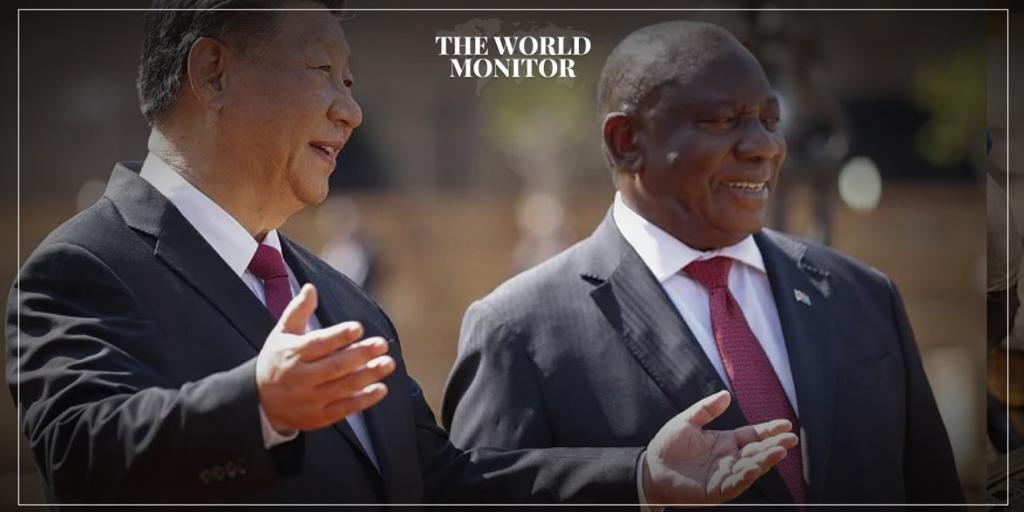At the recent BRICS summit in Pretoria, Chinese President Xi Jinping announced that China and South Africa stand at a “historical new starting point” in their bilateral relations. This significant statement was made during his official meeting with South African President Cyril Ramaphosa.
President Xi stated, “Today, as we stand at this historical new juncture, fostering friendship, deepening cooperation, and enhancing coordination represent the shared aspirations of our two countries and indeed the grand tasks ahead of us.”
China and South Africa have historically enjoyed a dynamic relationship. Since establishing formal diplomatic ties in 1998, both nations have seen their cooperation grow in leaps and bounds. China has become South Africa’s largest trading partner, and South Africa is now China’s most significant trade partner in Africa. The comprehensive strategic partnership established between them in 2010 has further solidified their mutual interests in trade, infrastructure development, and cultural exchange.
South Africa’s vast mineral resources, including gold, platinum, and rare earth metals, have been particularly enticing for China’s growing economy. In return, South Africa has benefited from Chinese investments in infrastructure projects, including railways, ports, and power stations. This symbiotic relationship, built on mutual trust and respect, has been the cornerstone of their interactions.
However, their relationship is not just limited to economics. Both nations have consistently supported each other in international forums. For instance, South Africa supports the One-China policy, recognizing Taiwan as an integral part of China. Likewise, China has backed South Africa’s initiatives in the African Union and other regional bodies.
BRICS is an acronym representing a coalition of five major emerging economies: Brazil, Russia, India, China, and South Africa. Initially coined as “BRIC” before the inclusion of South Africa in 2010, these countries are all distinguished by their significant influence on regional and global affairs. All five are members of the G20.
BRICS countries are known for their cooperative efforts that aim to bring economic development for their members and, by extension, for the global economy. The nations have a combined GDP accounting for approximately 20% of the world’s total. Their cooperation isn’t just limited to economic spheres; they hold regular meetings to discuss and promote collaboration in various fields, from security to arts and culture.
The significance of BRICS lies in its potential to be a counterweight to Western economic dominance. In recent years, the group has established the New Development Bank (NDB), aimed at financing infrastructure projects in developing nations, which is seen as an alternative to the World Bank and International Monetary Fund.






